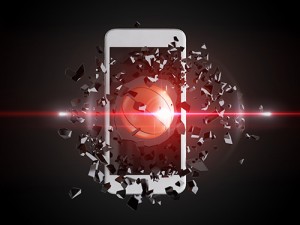 Below is the transcript of AIM Director Kara McFall’s commencement address from June 19, 2017.
Below is the transcript of AIM Director Kara McFall’s commencement address from June 19, 2017.
To our 2017 AIM graduates, their families and supporters; our AIM faculty and staff; and all others who are here to join in the celebration of our 2017 AIM graduating class—welcome. I’d like to start as I do at each graduation luncheon by asking the graduates, faculty, and staff to stand and join me in honoring the families and friends who supported our graduates throughout the AIM Program. Every one of our AIM graduates has worked hard to achieve the right to stand here today as a graduate of the program; but every graduate also had the help and support of their families and loved ones, who agonized along with them over proper APA citations, assignment deadlines, and countless rounds of edits in Capstone 1. The role that each of you played—as supporters of our AIM graduates—is an important one, and I would like to say thank you.
I will admit that I procrastinated in writing this address—I always do. There is always plenty of work to do in higher education so it’s easy to prioritize other work ahead of sitting down to write. Those of us who make graduation speeches feel the urge to say something profound and memorable, and I spend a lot of time searching for inspiration and the perfect words to say. Eventually, the realities of the calendar impose, and I’m forced to put the words on paper. As I pondered this annual ritual of procrastination, it occurred to me that I could take inspiration from this struggle and pass on a related and valuable lesson I’ve learned: the power of good enough.
The fact that all of you are here today as graduates of a demanding master’s program indicates that you are all high achievers, so the idea of settling for good enough may seem like an odd choice of inspirational themes for your commencement address. I know however that each of you were forced at some point in the program to settle for good enough instead of perfection; the demands of attending class, working full time, and meeting family and other obligations while still squeezing in sleep necessitates completing some assignments to standards that don’t meet your vision of perfection. My intention today as you head out as AIM alumni is to convince you that not only is the practice of sometimes settling for good enough acceptable, it is actually a best practice.
I was first exposed to the idea of good enough by my doctoral dissertation chair, who described the best dissertation as a finished dissertation. Writing a dissertation can be a paralyzing experience; you feel obligated to bring forth some amazing bit of knowledge that is brand new to the world, and to do so in a way that is brilliant and profound; this idea may strike a chord with those of you who recently went through Capstone 1. The result for me was a hesitation to put anything to paper, and my meetings with my chair were frustrating for both of us due to my lack of progress. We finally settled on the approach of setting hard deadlines for different sections, and when I left her office after each meeting she often reminded me that “The best dissertation is a finished dissertation.” In her own way she was advocating that I settle for good enough. This change in my approach is what enabled me to finally start the writing process in earnest and eventually earn my doctorate. Similarly, being forced by the calendar to complete this address is why I am reading a finished speech rather than standing up here winging it.
Some tasks benefit from a systematic approach to completion, while others benefit from a more fluid approach that may include procrastination. You don’t need to be creative when doing your taxes unless your goal is to be a tax evader; a systematic approach in this scenario is best, and it’s obvious when you have reached a point of completion. It can be hard to identify when you have finished a task that requires creativity, as the urge to edit, rewrite, and strive for perfection can be strong. In these cases, procrastination can force us to let go of whatever doubts have been holding us back and achieve a level of brilliance that might have otherwise eluded us. Sometimes pushing ourselves to the point of good enough actually results in a better outcome.
The realities of our schedules dictate that we make the decision to settle for good enough on a regular basis. One of the insights I’m hoping you take away today is to realize that the results of these decisions are not causes for regret, and that you will actually achieve more in life by giving up the standards of perfectionism that cause us to agonize later about not turning in the perfect paper, planning the perfect vacation, or throwing the perfect birthday party. While research backs up my advice, there are challenges all of us face that keep us chasing perfection. In addition to having more choices today than in previous times, we also have more opportunities to compare ourselves to others, through the media and especially through social media. But comparing your decisions and actions to the unreal and sanitized versions we see online doesn’t lead to improved decision making; it inevitably leads to regret. Don’t fall into this trap.
More than ten years ago, psychologist Barry Schwartz coined the terms “satisficers” for people who settle for good enough and “maximizers” for people who always try to choose the very best option. Schwartz’s research was anchored in the idea that all of us now face overwhelming choices for even simple decisions like which brand of cereal to buy. This kind of paralysis can be even more striking when the consequences of a decision are higher. I hold my own versions of the “good enough” discussion with many of my Capstone 1 students who admit they are stressed about picking the right topic, and are worried about the consequences of choosing the wrong topic. If you were one of those students, I hope you will soon discover a fundamental principle of the theory of good enough: you don’t need to achieve perfection in order to succeed. I hope you take the time later, when enough time has passed to put your time with AIM into context, to discover that all of the occasions when you were forced to turn in a paper that did not meet your ideas of perfection are not cause for regret, but instead enabled you to achieve your ultimate goals of gaining new knowledge, learning valuable skills, practicing innovative ideas, and ultimately becoming AIM graduates.
I want to close by clarifying one point: I’m not advocating that you give up high standards and start taking a lackadaisical approach. Instead, I’m suggesting that you recognize the limitations of time and energy and do the best job you can in the time allotted, even if you fall short of your version of flawless. Balance is achieved by learning when to go all-in on a task and when good enough is a smarter goal. You can’t achieve perfection in every task and striving to do so is counterproductive. Doing your best is different from seeking perfection, and if you make doing your best your goal you will find that your sense of satisfaction and of a job well done will rise. One of the key findings that Dr. Schwartz found in his research is the fact that satisficers, those who pursue good enough, are much happier than the perfectionist maximizers.
AIM class of 2017, I am proud of each one of you and wish you well in doing your best and pursuing the satisfaction that comes with good enough. I hope you will take the opportunity to keep in touch with us as you move into your next phase as AIM graduates. Congratulations to you, AIM class of 2017!





